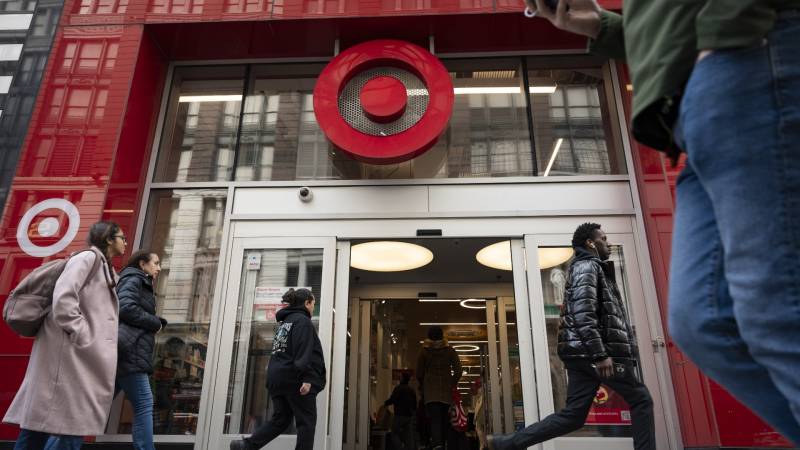Retailers are now facing a lot of headwinds, including tariffs and a drop in consumer confidence. But for Target, once affectionately known by customers as Tar-jay, a consumer boycott in response to the company’s decision to drop some DEI initiatives has been an added drag. In its most recent earnings call, the retailer reported a 3.8% drop in sales and lowered its earnings targets for the year. Consumers have long channeled their buying power to express political beliefs, whether it’s selling their Teslas, avoiding a certain retailer, or goods from a particular country. We look at the power of the consumer boycott, and why this one seems to be working.
What the Target Boycott Says About the Power of Consumers

People walk past Target Store in Midtown Manhattan on March 06, 2025 in New York City, United States. (Mostafa Bassim/Anadolu via Getty Images)
Guests:
Amanda Mull, columnist, Bloomberg; Wrote the column “Buying Power” on American consumerism.
Alex Ossola, host/producer, "What’s News" podcast at the Wall Street Journal
Americus Reed II, professor of marketing, The Wharton School, University of Pennsylvania
Sponsored